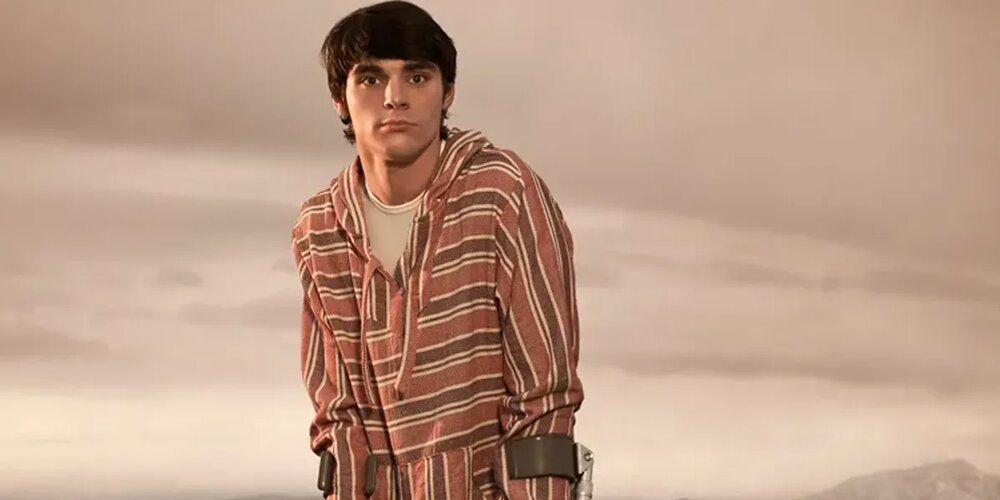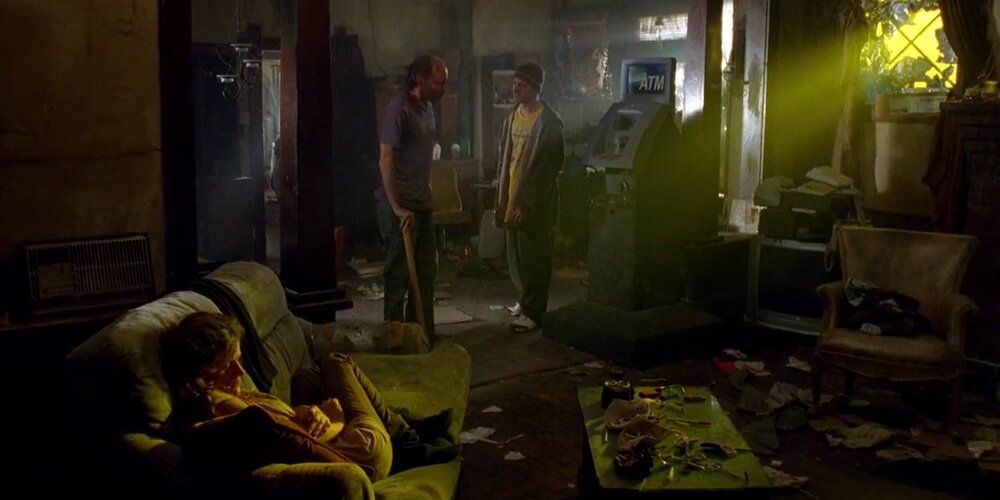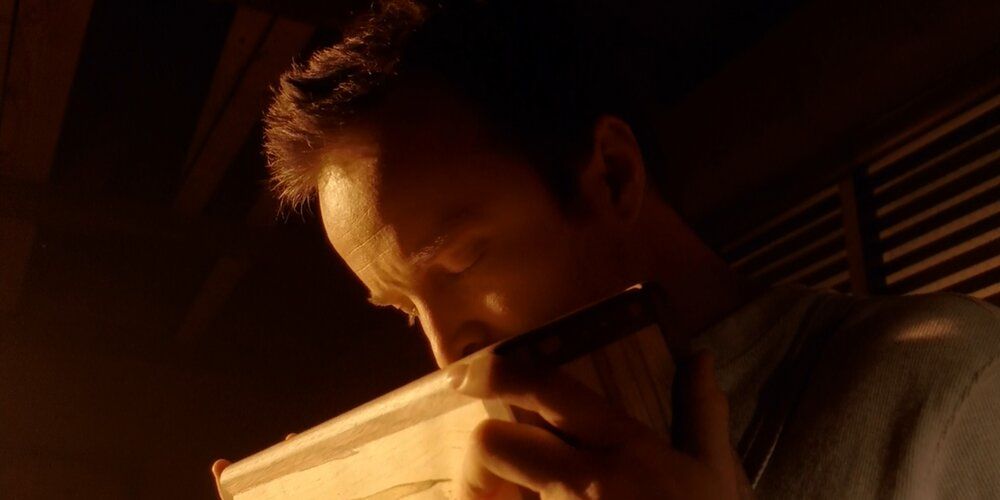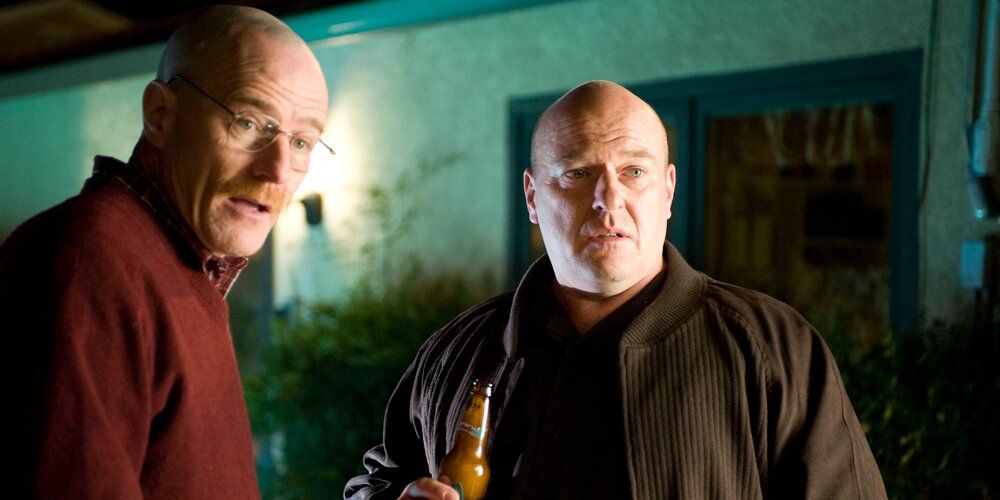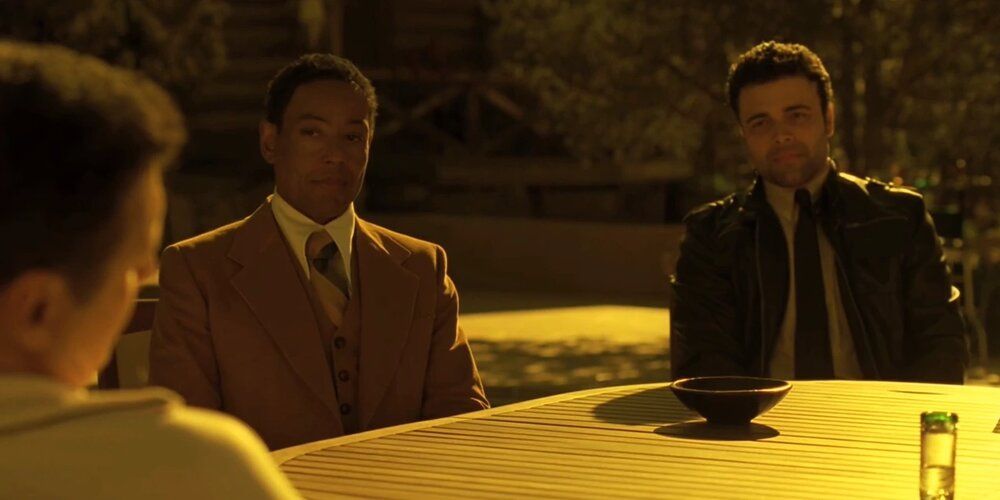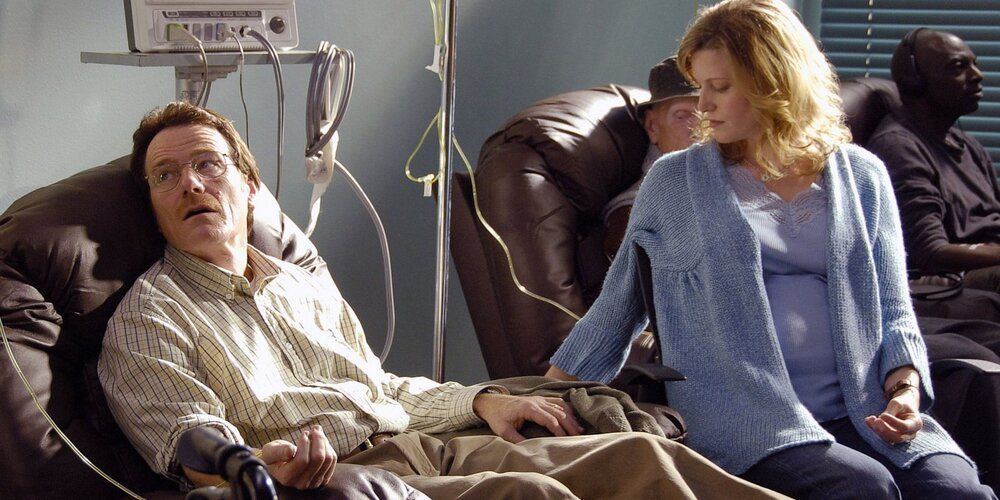It is unusual that a show focusing almost exclusively on criminals, both low-level and organized, to contain such a large number of positive elements. Yet Breaking Bad, with its rich themes and deep storytelling, has plenty. While some parts of the show have aged poorly in the few years since it ended, the same doesn't apply to all of them.
Rather, Breaking Bad contains a number of elements that either were relevant at the time and have remained so or were even ahead of their time and resonate even better with audiences today, from storytelling choices to the show's themes across a number of areas.
7 A Disabled Major Character Who Is More Than His Disability
Starting off somewhat in the background, Walter Jr. "Flynn" White, Walt's son, becomes a bigger part in the show over time, especially as Walt's business begins to bleed into his personal life and negatively impact his family.
Flynn has cerebral palsy, using crutches and speaking with a speech impediment. This element isn't ignored or brushed under the carpet, with it often being referred to or impacting Flynn, but it also isn't the only thing about him. Instead, many of Flynn's plotlines are about things unrelated to his disability, such as his parents' divorce, or him setting up a website to help Walt, while his disability remains unignored. Many shows today still struggle with a positive and un-patronizing representation of disability.
6 Shows, Rather Than Tells, The Impact Of Drugs
Given that the show is about the production and dealing of meth, there have been concerns raised from many quarters that it could glamorize the drugs trade, and taking of the same. Instead, the show gives a very realistic look at both. The drugs trade is the opposite of romantic, with a lot of it being boring, and the bits that don't tend to be unpleasant instead.
Numerous drug addicts are seen throughout the show, often in unfortunate circumstances - Jesse hitting rock-bottom several times, Jane choking to death on her vomit, and the couple who steal an ATM with fatal results. The show is not preachy, however, early on mocking heavy-handed anti-drugs PSAs with Hank. Instead, it simply presents things as they are, and lets viewers make their own judgments.
5 A Focus On The Possibility Of Improvement
A lot of the characters in Breaking Bad are those looked down upon in society, including drug addicts and petty criminals. Nonetheless, a recurring message of the show is that anyone can improve if they apply themselves, with Jesse, in particular, showing himself to be an exceptionally talented and intuitive person who has simply been given up on, both by others and himself.
Many of the conflicts in the show are created by people simply refusing to do or be better, with Walter's moral slide downwards being in part caused by his refusal to stop or try to do things a better way. It's a rare message to see in a show and one that could uplift many.
4 Themes Of Family, Blood, And Otherwise
On its surface, Breaking Bad is nearly entirely about family. It's the ostensible reason Walt goes into the drugs trade in the first place, to provide money for his wife and children, both to pay for his cancer treatment and to support them after his death. Throughout, people go to great lengths to protect or avenge those they are related to, or even those they have chosen as their family.
Even at his darkest, Walter offers all of his money to save Hank's life, despite the threat Hank poses him. Gus Fring carries out his entire war against the Cartel because they killed a single man he saw as a brother. One of the most significant relationships in both Walt and Jesse's lives are each other, with a strange father-son dynamic between them. Even when he admits that he was in the drugs trade for himself, not for his family, Walt takes risks to get millions to Flynn and Holly. Family is an evergreen theme, one that is still popular today.
3 Skyler Being Given Agency
Skyler is in some ways one of the biggest characters in Breaking Bad, often sharing the spot of third-most significant character after Walt and Jesse with Hank. With an initial characterization seeming to paint her as a wet blanket, she proves herself to be capable and innovative, pulling off several cons that Walt would never have thought of, and supporting Walt's drug empire with incredible competence, but of her own choice.
A recurring conflict throughout the show is Walter and Skyler's slowly collapsing marriage as a result of Walt's behavior, and the threat of Walt's work. Although the fanbase often demonized Skyler for standing up to Walt, the show itself never does, instead implicitly validating many of her complaints. The show is not perfect in its depiction of women, but Skyler stands above many as a female protagonist with agency.
2 The Humanization Of Criminals
In many shows, especially police shows, criminals are often shown to be one-dimensional villains who break the law more or less for its own sake, lacking complex personalities. With so many of its principle and incidental characters being criminals, Breaking Bad explores their internal lives and motivations, revealing nearly all of them to be rounded, three-dimensional individuals.
Notably, this does not always entail making them sympathetic. Jack Welker's neo-Nazi gang - especially Todd - are made more complex than simple criminal bigots, but they are shown to be, if anything, all the more contemptible before it. In some cases, however, criminals are made sympathetic through their histories and personalities, such as in the case of Gus Fring. Nonetheless, showing the humanity, if not sympathy, for even those considered the lowest is a bold step for Breaking Bad, and one many hope to see in more shows.
1 Shows The Impacts Of Poor Healthcare
The oft-told joke is that British or Canadian Breaking Bad consists of Walter getting his cancer diagnosis, and the show ending there because he simply receives treatment for free. While a meme repeated by the fanbase, there is nonetheless a kernel of truth to the joke. Breaking Bad makes it explicitly clear that the reason Walter considers drug production is because of the likely cost of his medical bills.
While the motivation evolves and moves on from there, it is from healthcare that it starts. Healthcare and the impact it has on the uninsured remains a major political conflict in the US to this day, with this show still providing an occasional discussion point.


